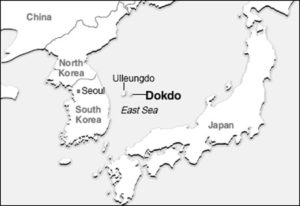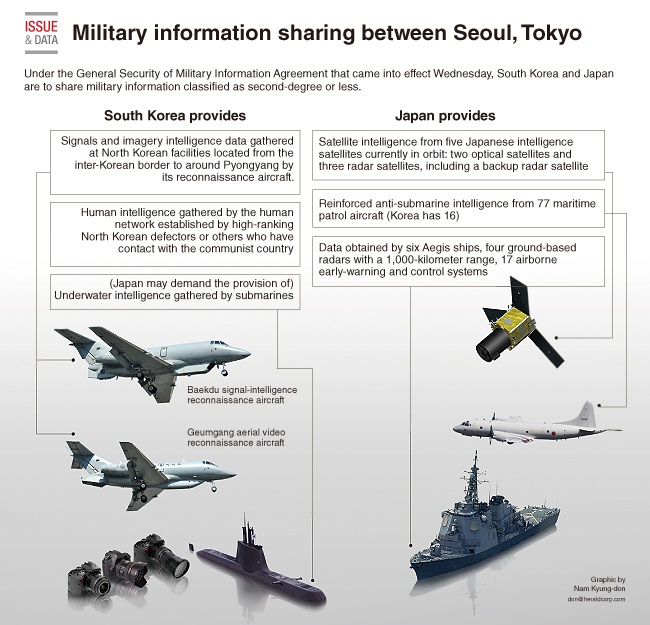General Security of Military Information Agreement (GSOMIA) 24/11/2019 – Posted in: Daily News – Tags: Dokdo islands, Japan, South Korea
General Security of Military Information Agreement
For: Preliminary & Mains
Topics covered:
- About agreement
- Japan – South Korea Relations
- Dokdo islands
News Flash
South Korea has decided to suspend its plans to quit an intelligence-sharing pact with Japan amid pressure from the United States.
Earlier, South Korea had decided to discontinue the intelligence pact, the General Security of Military Information Agreement (GSOMIA) by November 22, unless Japan decided to review its export control measures.
The GSOMIA pact
- The idea to exchange intelligence between South Korea and Japan was first suggested by the latter in the 1980s.
- In 2012, the two countries were expected to sign GSOMIA, but it was not due to public outrage in South Korea against the agreement.
- The need for GSOMIA was felt amidst a growing threat from North Korea, when it started conducting nuclear tests and developing ballistic missiles. The agreement was eventually signed in November 2016.
- The US’ interest in this agreement stems from its need to forge alliances in the northeast to be able to analyse and respond to any threats from North Korea.
- Significantly, it may be China’s perception that GSOMIA is an attempt by the US-Japan-South Korea trilateral alliance to contain Beijing, thereby maintaining a degree of opposition between this trilateral alliance and that of China-North Korea-Russia.
Japan and South Korea Relations
- Korea is a former colony of Japan, a colonial rule between 1910-1945. The Japanese rule is even today behind the “anti-Japan” sentiment in Korea.
- After the division of North and South Korea in 1948, formal diplomatic relations between Japan and South Korea were established in 1965, with the signing of the Treaty on Basic Relations between Japan and the Republic of South Korea.
- Significantly, both Japan and South Korea are US allies, but in recent years, the relationship between both countries has deteriorated, given the territorial dispute over the Dokdo islands — known as Takeshima in Japan. While South Korea controls them, the islands are claimed by Japan.
- Furthermore, the two countries have differing views on Imperial Japan’s treatment of Koreans, especially the forced labourers and “comfort women” or “sex slaves”.
- Japan maintains that South Korea’s claims for reparations and damages were settled with the 1965 treaty.
- In July, Japan imposed export controls on three chemicals that South Korea uses in its important semiconductor industry and in August, Japan decided to remove South Korea from its “white list”, a fast track trade list of trusted partners.
- This is considered to be retaliation for South Korea’s decision to leave the intelligence pact, a decision that was made in August.

Dokdo islands
Source: Indian Express
READ MORE DAILY NEWS
- Kishori Health Cards
- Mahila Sashaktikaran Scheme
- ‘Nadu-Nedu’ programme
- ‘Sindhu Sudarshan’ exercise
- Haryana to create new “Foreign Cooperation” Department
- Kimberely Process Certification Scheme
- Akash: India’s first home-made supersonic missile
- IMD World Talent Ranking Report 2019
You are on the Best Online IAS preparation platform. You are learning under experts.
We are present on Facebook- Diligent IAS, LinkedIn- Diligent IAS, YouTube- Diligent IAS, Instagram- Diligent IAS. Get in touch with us.

